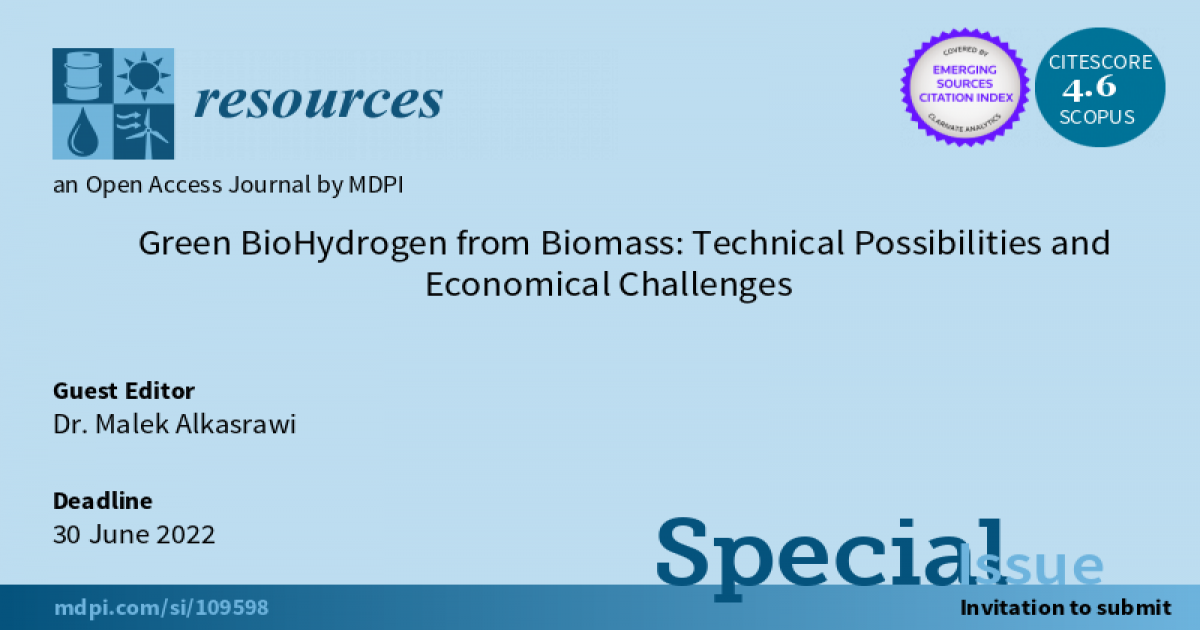Green BioHydrogen from Biomass: Technical Possibilities and Economical Challenges
A special issue of Resources (ISSN 2079-9276).
Deadline for manuscript submissions: 30 September 2024 | Viewed by 2800

Special Issue Editor
Interests: biorefinery; enzymatic hydrolysis; ethanol fermentation
Special Issues, Collections and Topics in MDPI journals
Special Issue Information
Dear Colleagues,
Biohydrogen is the future energy fuel for cars and marine transportation. The market for biohydrogen is already established for chemical industries such as the petroleum industry and ammonia production. We are inviting papers on recent developments and technology presentations of biohydrogen productions from biomass. Biohydrogen is the future energy fuel due to its high energy density and diverse applications. Priority will be given to work on hydrogen production from algae. We welcome manuscripts on biohydrogen storage, transportation, and market analysis.
Dr. Malek Alkasrawi
Guest Editor
Manuscript Submission Information
Manuscripts should be submitted online at www.mdpi.com by registering and logging in to this website. Once you are registered, click here to go to the submission form. Manuscripts can be submitted until the deadline. All submissions that pass pre-check are peer-reviewed. Accepted papers will be published continuously in the journal (as soon as accepted) and will be listed together on the special issue website. Research articles, review articles as well as short communications are invited. For planned papers, a title and short abstract (about 100 words) can be sent to the Editorial Office for announcement on this website.
Submitted manuscripts should not have been published previously, nor be under consideration for publication elsewhere (except conference proceedings papers). All manuscripts are thoroughly refereed through a single-blind peer-review process. A guide for authors and other relevant information for submission of manuscripts is available on the Instructions for Authors page. Resources is an international peer-reviewed open access monthly journal published by MDPI.
Please visit the Instructions for Authors page before submitting a manuscript. The Article Processing Charge (APC) for publication in this open access journal is 1600 CHF (Swiss Francs). Submitted papers should be well formatted and use good English. Authors may use MDPI's English editing service prior to publication or during author revisions.
Keywords
- biohydrogen
- dark fermentation
- micro-algae
- photoautotrophic
- hydrogenase





